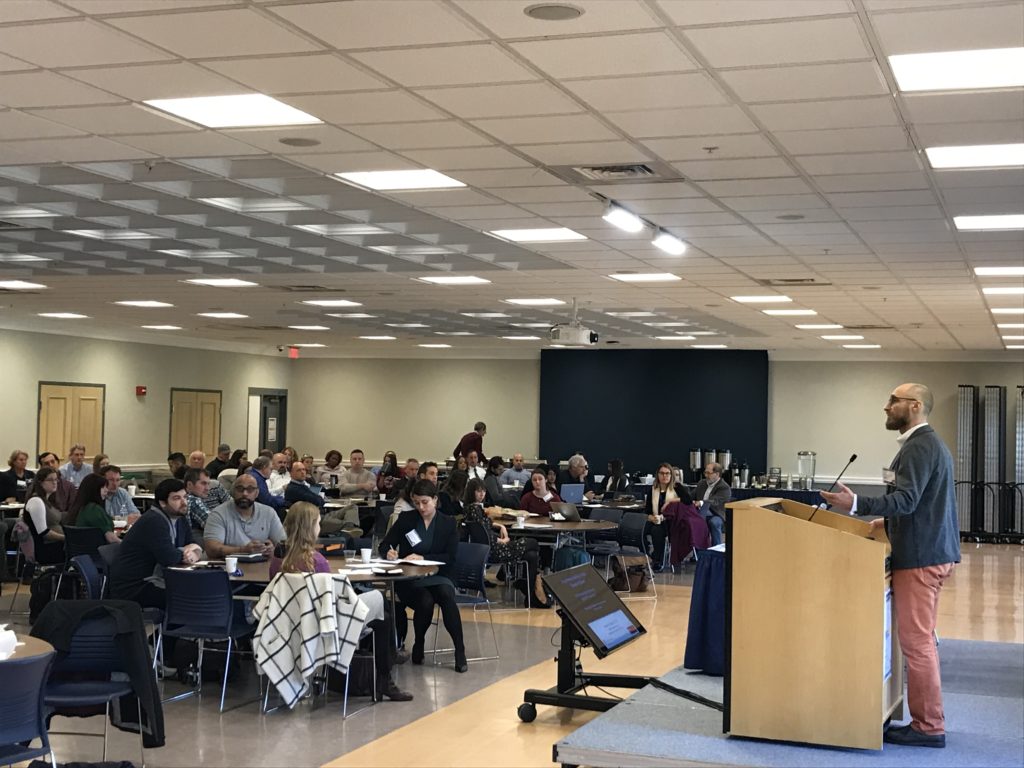
By Kate Boulton, JD MPH, Legal Technical Advisor of Overdose Prevention Program at Vital Strategies
In Pennsylvania—and about 20 other U.S. states—a person can be charged with homicide and face decades in prison if they share drugs with a friend or family member who ends up dying of an overdose. Even if the person did not know the drug was lethal, even if they called 911 for help or they overdosed themselves, they can still be prosecuted.
It’s an issue gaining traction across the nation, as in this recent New York Times editorial. Vital Strategies’ Overdose Prevention Program convened more than 100 criminal defense lawyers and legal experts from across Pennsylvania to learn how to better defend clients who are charged with “drug delivery resulting in death,” a first-degree felony punishable by up to 40 years of incarceration.
Pennsylvania State Rep. Sara Innamorato opened the Nov. 6 gathering at Penn State Harrisburg with a personal story about losing her father to drug overdose. She laid out a powerful vision for treating people who use drugs with compassion and support rather than blame and punishment. The training also included presentations from leading medical professionals, public defenders, and harm reduction advocates.
The Philadelphia Inquirer wrote a thoughtful piece on the gathering which highlighted the how these types of prosecutions conflict with public health strategies. Rather than targeting “kingpin drug dealers,” around 50% of people prosecuted are friends, family, co-users and doctors according to the Health in Justice Action Lab at Northeastern University. The law often ensnares people who struggle with drug use themselves. As a result, the threat of harsh criminal repercussions can be a powerful disincentive to calling 911, which makes these prosecutions directly opposed to the purpose of the state’s Good Samaritan Law.
Pennsylvania leads the nation in prosecuting overdoses as homicides. Between 2013 and 2017, drug delivery resulting in death prosecutions surged by 1,267% in the state. Over 600 people have been charged since 2013. The Nov. 6 training was a jumping off point for Pennsylvania defense lawyers to use advocacy and engagement with the community to fight back.
Criminalization and punishment are outdated, ineffective, and harmful responses to the overdose crisis, and prosecuting someone for “drug delivery resulting in death” is an example of the failed policies of the past. Drug overdose is a public health problem and together with our partners, we’re implementing evidence-based solutions across sectors, stakeholders, and levels of government to reduce harms and ensure that millions of people can live healthier, longer lives.
The National Association of Criminal Defense Lawyers (NACDL), in partnership with the Public Defender’s Association of Pennsylvania, the Pennsylvania State University Douglas W. Pollack Center for Addiction Outreach and Research, and the Health in Justice Action Lab cosponsored the free continuing legal education training. The training was supported by Vital Strategies which, along with Johns Hopkins University, The Pew Charitable Trusts, and the Centers for Disease Control and Prevention, is part of $50 million investment by Bloomberg Philanthropies to address the overdose epidemic in the United States.